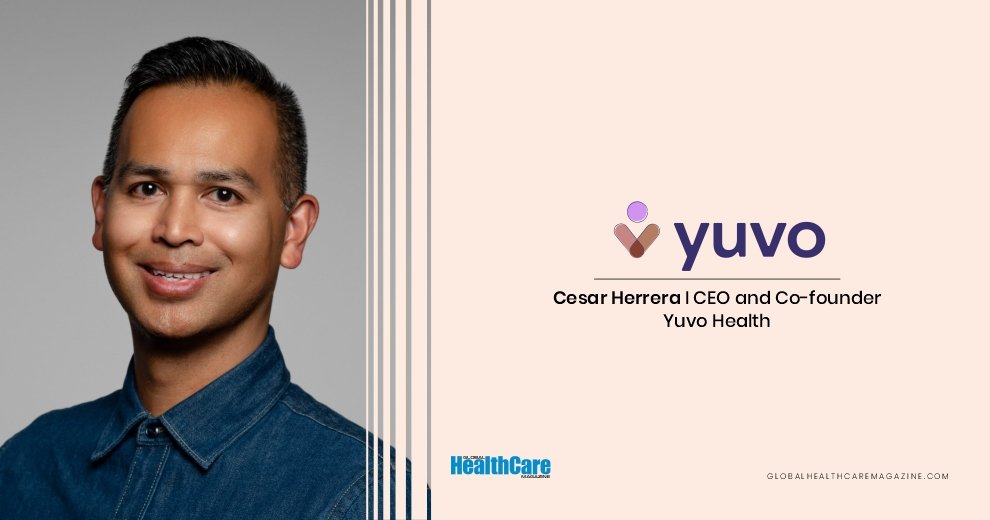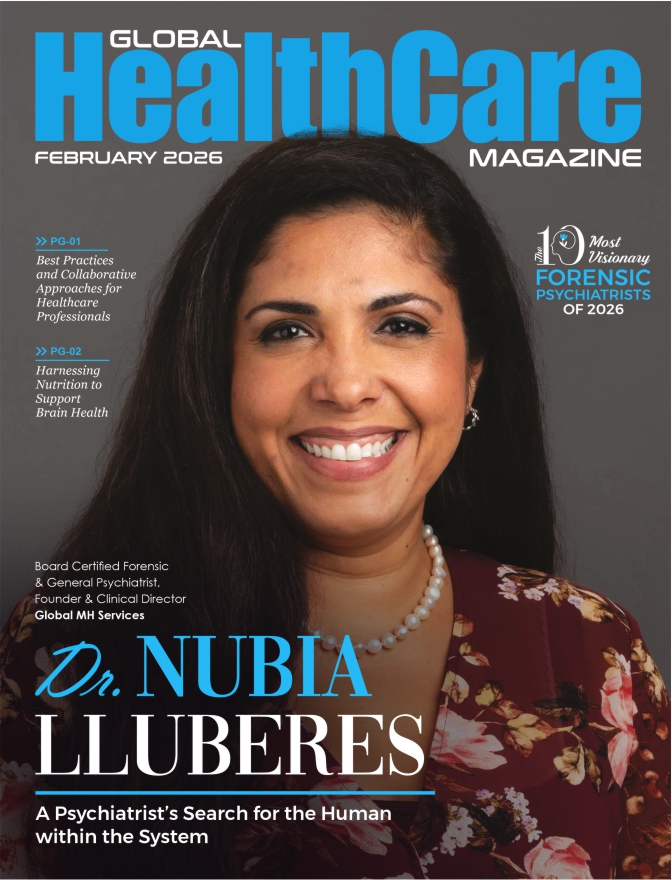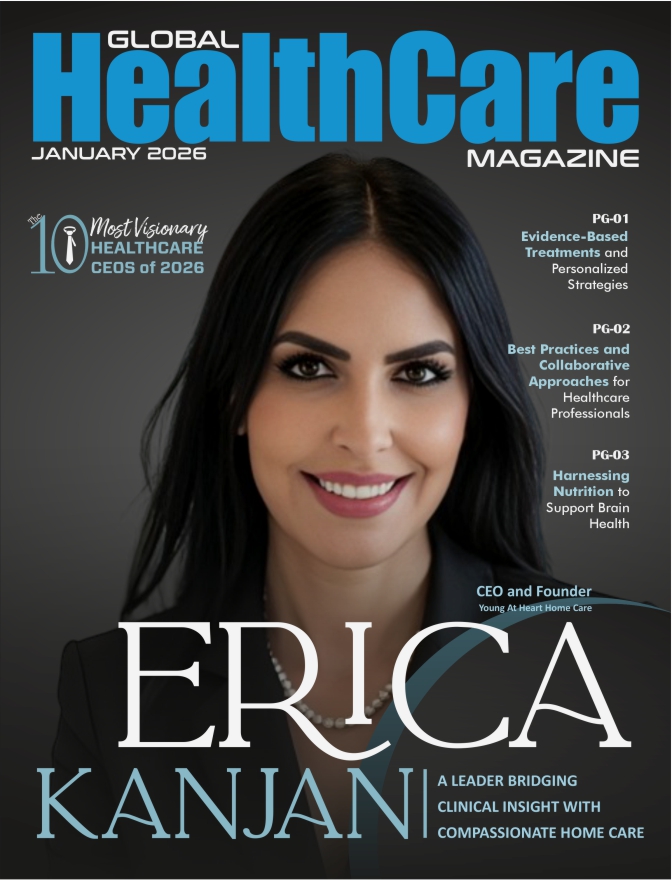The smell is the first thing he remembers. Not the fluorescent hum of the lights, or the muffled sound of the vacuum cleaner down the hall, but the sharp, chemical tang of industrial-grade cleaner and floor wax. It’s the smell of empty offices late at night. When Cesar Herrera was old enough, he would join his parents on these cleaning jobs in and around Detroit. His family had immigrated from the Philippines when he was three, settling into the kind of working-class neighborhoods where survival was a mosaic of various jobs.
He remembers the feeling, too. A creeping shame, hot and private, as he emptied wastebaskets in the dark, knowing other families didn’t have to do this. He understood, in that visceral, wordless way a child does, that the architecture of this new country was built on rules he couldn’t see, and that his family was on the outside of them.
To meet Cesar Herrera today is to meet a man who seems to have mastered every rule of that architecture. He is the CEO and Co-founder of Yuvo Health, a company built on a premise so complex—enabling Federally Qualified Health Centers (FQHCs) to thrive in value-based care arrangements—that explaining it requires a glossary of healthcare jargon. He holds three degrees from three prestigious universities: the University of Michigan, Johns Hopkins, and the NYU Stern School of Business. He is calm, pragmatic, and speaks with the considered precision of someone who has led teams in strategy, finance, and operations.
He is, in short, the last person you’d expect to have ever felt like an outsider. But the man building one of the most critical new platforms for America’s healthcare safety net is the same kid who felt the shame of emptying those wastebaskets. The two are not just connected; one created the other.
The Narrow Path
The thing about predetermined futures is that they feel, most of all, constraining. By nineteen, Herrera was at college and felt the walls of cultural and societal expectation closing in. He was lost. He saw a narrow path laid out for him by his socioeconomic status and seriously considered dropping out.
The change came not as a lightning bolt, but as a person. A Filipino American professor at the university. She didn’t just mentor him; her very existence “demolished the traditional stereotypes.” She presented an alternative version of success, a different blueprint. This encounter didn’t just empower Herrera; it gave him a target. He realized that the systemic constructs he’d felt as a child—the ones that made his family clean offices while others owned them—had a name. He majored in Sociology and Ethnic Studies. He began to study the map of race, class, and gender, and how those lines invariably, cruelly, traced the outlines of health outcomes.
He made a mission: to be an advocate for communities like his. But without a guide, he had to forge his own way. “Twenty years ago,” he says, “I didn’t even know these career opportunities existed and I certainly didn’t believe they were available to me.”
So he started collecting tools.
A Resume Like a Toolkit
If you look at Cesar Herrera’s career before Yuvo Health, it seems winding, almost chaotic. He worked on Medicare policy. He developed programs for HIV initiatives. He managed value-based strategies for an insurance company. He even did a one-year stint in investment banking. It reads less like a career ladder and more like an apprenticeship in every corner of the problem. He was learning the language of the public sector, the private sector, the payers, the financiers, and the providers.
He was, piece by piece, learning to be the leader he’d wanted to find in his own community.
Eventually, he landed a leadership role at a healthcare startup, developing programs to remove social barriers for low-income communities. It was, by all accounts, the job. This was “everything he had set out to do.” But a familiar feeling returned: constraint. He was unfulfilled. The work was right, but the company’s direction was out of his control.
“I never thought entrepreneurship was an option to me,” Herrera admits. It’s a striking confession from a now-CEO. But the realization had crystallized: “In order to make the most impactful change at a local level, I knew I had to do so on my own terms.”
The idea for Yuvo Health, discussed in the liminal spaces of work—between meetings, on trips—with his co-founder, Janel Sia, wasn’t just a market opportunity. It was the culmination of his entire life’s search. It was the tool he had been building all along.
The Problem of the Clinic
Here is the central paradox of American healthcare: “Free and low-cost health care exists in this country,” Herrera explains, “but millions of Americans can’t access it because providers are overburdened and underfunded.”
The providers he’s talking about are FQHCs, the community health centers that have, for decades, been the only lifeline for our most underserved populations. They are the heroes of the story. But they are drowning. They operate on razor-thin margins, buried in administrative work, and are structurally locked out of the new financial models—like value-based care—that reward keeping people healthy rather than just treating them when they’re sick.
“This inevitably harms historically underserved communities who already face disproportionate health outcomes,” he adds.
Herrera’s insight was to not reinvent the wheel. Don’t build new clinics. Don’t try to be the provider. Instead, build the thing the providers themselves don’t have the time, capital, or expertise to build: a modern, scalable administrative and managed-care engine. Yuvo Health is the infrastructure. It’s the plumbing, the scaffolding, the translator. It partners with FQHCs, takes the administrative burden off their backs, and gives them the power to negotiate with large insurers, allowing them to finally unlock the revenue streams that come from proving they are keeping their communities healthy.
It is, in essence, a company designed to give community clinics financial independence. It is a business model built on empathy.
The Zip Code Equation
When Herrera speaks now, you can hear the sociologist, the policy wonk, and the banker all at once. But most of all, you hear the kid from Detroit. “Right now, zip codes and annual incomes dictate how long we live, but this shouldn’t be the case,” he says, his voice quiet but firm. “When we invest in local communities, we invest in generational change.”
He is, by nature, a pragmatist. He wouldn’t have founded a company unless he believed, wholeheartedly, that the mission was sound and the model was practical. He is implementing change not with speeches, but with spreadsheets; not with outrage, but with contracts and scalable tech.
He is trying to break the equation that defined his childhood. He is building a system that recognizes the value of the very people who are, right now, invisible in plain sight—the ones cleaning the offices, driving the buses, and caring for the children.
“I’m confident that I’m working on implementing practical, meaningful, and important change in communities like my own,” Herrera says. There’s a pause. “I’m privileged to be in the position I’m in and I know my teenage self would be shocked—and proud—to see me now.” The shame of the cleaning-fluid smell is gone. He’s building something new, something designed to last, and this time, he’s the architect.
Also Read: The Five Most Influential FQHC Leaders to Watch in 2025













